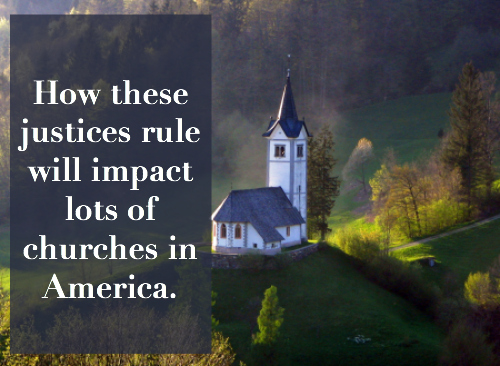A case involving a church sign is headed to the Supreme Court. While that might seem like a trivial case, it illustrates what may become a major battleground between church and state.
A small church in Arizona relies on temporary signs to direct worshipers to its services. This Presbyterian Church rents space in various places for its services. So they depend on putting up cardboard signs to direct people to the latest location.
The town of Gilbert, Arizona restricts such signs, but does not appear to restrict other signs put up by politicians and even signs put up by the homeowner associations. One picture I saw showed one fence completely covered with campaign signs during the last election. In the background you can even see signs on other walls like “For Sale By Owner.” It is hard to believe that a temporary sign directing people to a worship service would have any negative effect on the aesthetics of the community.
At stake is much more than aesthetics. The case raises this question: Does government have the right to censor the type of content citizens promote? This is not only a freedom of religion question: it’s a free speech question. And it raises questions about how zoning will affect churches in the future.
On my radio program, I have suggested that future church-state battles won’t be over school prayer or the posting of the Ten Commandments as much as they will be battles between cities and churches over zoning.
A church in Texas was told it could not hold services in their rented space because a local ordinance bans a church or a school from meeting on the property. A church in Georgia had to hold its services in the basement of a jewelry store because churches cannot meet on property of less than three acres. A church in Illinois could meet and pray on their property, just not on Sunday mornings. And they could not call their property a church.
This growing list of restrictions may be why the Supreme Court decided to hear a church sign case. How these justices rule will impact lots of churches in America.
 Listen Online
Listen Online Watch Online
Watch Online Find a Station in Your Area
Find a Station in Your Area











 Listen Now
Listen Now Watch Online
Watch Online
